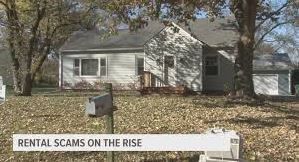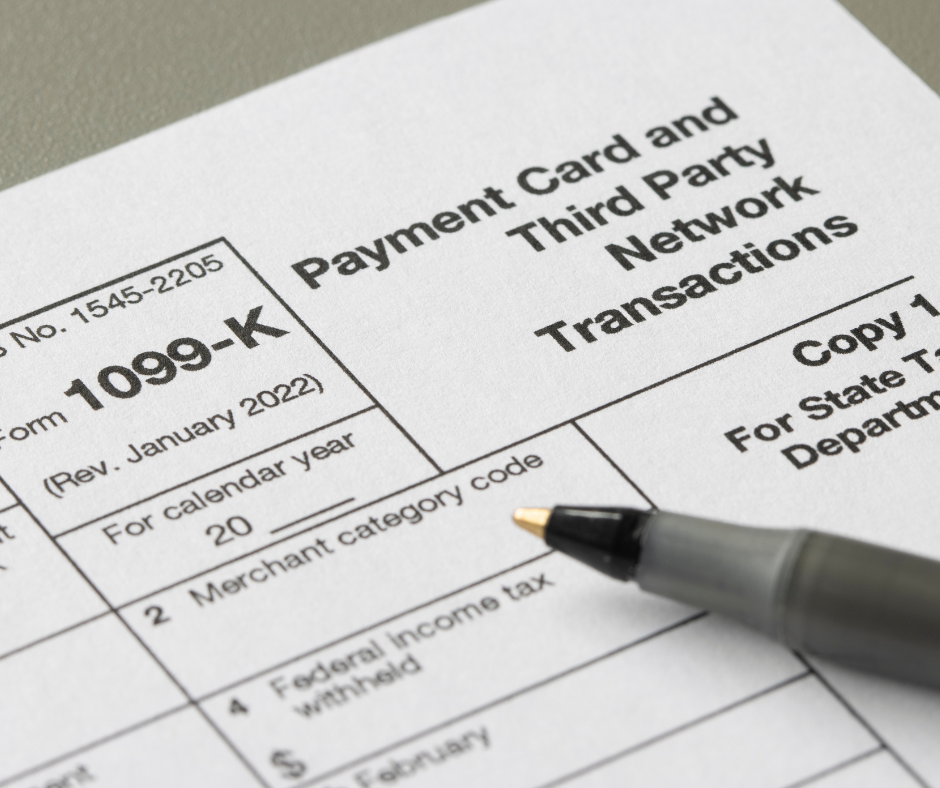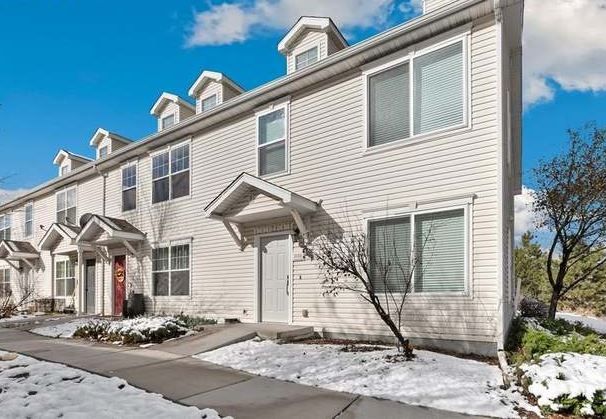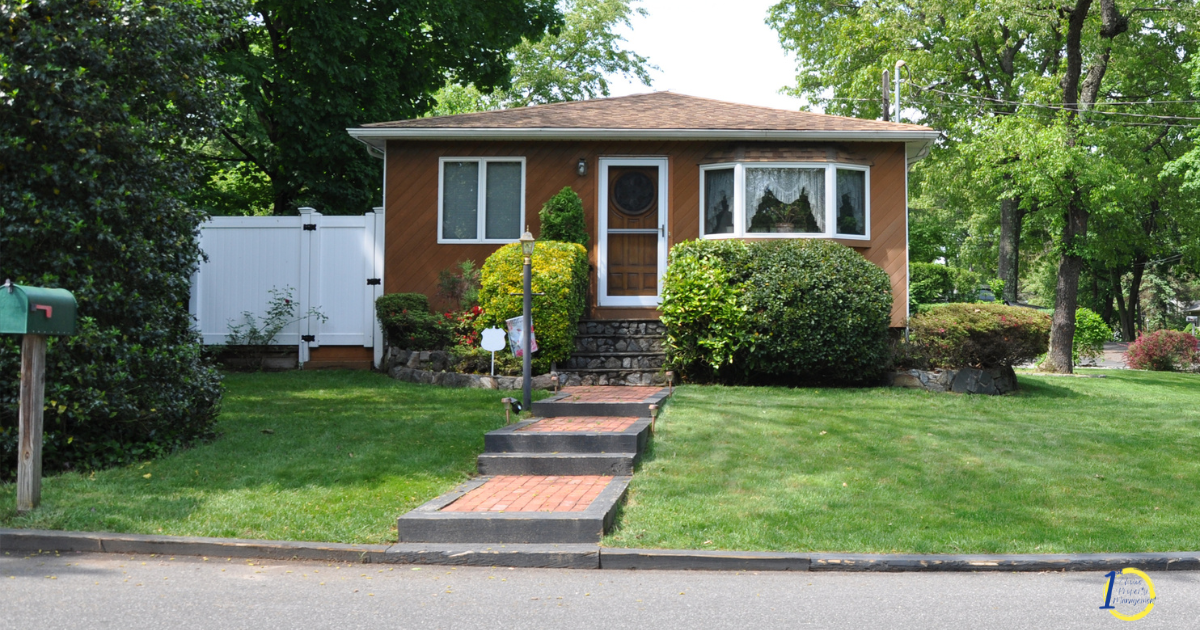BLOG

If you're currently on the hunt for a new rental, here’s something you need to know: rental scams are happening more often than ever. In fact, the FBI reports a 64% increase in rental fraud over the past three years . With high demand for affordable housing, scammers are jumping in to take advantage—and they’re getting sneaky about it. At 1st Choice Property Management, we’re all about helping renters feel informed and confident during their search. So let’s break down how these scams work, what red flags to watch for, and what to do if you think you’ve been targeted. How These Scams Usually Work Rental scams typically fall into two categories: Fake Listings (aka “Phantom Rentals”) Scammers post attractive rental listings—complete with great photos and prices that seem too good to be true—but the property either doesn’t exist or isn’t actually available. Hijacked Ads In this case, the scammer copies a real rental listing but swaps out the contact info so you end up speaking with them instead of the actual property manager. In both scenarios, the scammer is trying to get your money—or worse, your personal information like your Social Security or bank account number. 6 Red Flags That Could Mean a Scam Here are some common signs a rental listing might not be legit: They Avoid Meeting in Person If the person listing the property won’t meet face-to-face or won’t show you the unit in person, be cautious. Scammers often claim they’re out of town or make excuses to avoid a physical showing. They Ask for Money Upfront Never send money—especially deposits or rent—before signing a lease and seeing the property. If they’re asking for payment first, that’s a huge red flag. The Price Seems Too Good If the rent is significantly lower than similar properties in the area, it’s likely bait. Scammers use low prices to get quick attention and rush you into sending money. The Listing Looks Off Typos, blurry photos, or images with watermarks are all signs the ad might’ve been copied from somewhere else. No Clear Address If you can’t confirm the exact location of the property, it’s a sign the listing could be fake. They’re Rushing You Scammers use urgency to pressure renters—telling you to “act fast” or risk losing the property. A legitimate landlord will take time to screen tenants properly. How to Protect Yourself You don’t have to be a detective—just take a few simple steps to protect yourself during your search: Double-check listings. Use reputable rental platforms and cross-reference listings to make sure the info lines up. Use Google Maps. Compare exterior photos in the listing with street view images online. If things don’t match, be careful. Connect directly. Talk to the landlord or property manager on the phone or video chat. Avoid doing business over text or email only. Avoid sketchy payment methods. Don’t use wire transfers or send cash. Stick to secure, trackable payment options. Protect your personal info. Only share sensitive details once you’re 100% sure the listing and landlord are legit. What to Do If You’ve Been Scammed If you think you’ve fallen for a rental scam, here are a few steps to take right away: Report it. Let the FTC and the FBI’s Internet Crime Complaint Center (IC3) know. Also report it to your local authorities. Flag the listing. Contact the website where you found the ad so they can remove it. Freeze your credit. This helps protect against identity theft if you shared personal info. Monitor your accounts. Keep an eye on your credit and bank accounts for any strange activity. Reach out to your bank or payment platform . They may be able to reverse a fraudulent transaction if you act quickly. Scammers are getting smarter, but with a little awareness and caution, you can avoid falling into their traps. At 1st Choice Property Management, we’re always here to help guide you through a safe and stress-free rental experience. Have questions or want help finding a place you can trust? Reach out to our team—we’ve got your back.

At 1st Choice Property Management, we often get asked: “What’s the difference between a tenant and an occupant?” It’s a great question—and one every landlord, property manager, or leasing agent should fully understand. Let’s break it down. Tenants vs. Occupants: The Basics The key difference is simple: tenants sign the lease , while occupants do not . Tenants are legally bound by the lease agreement. They have financial responsibility, must follow property rules, and are protected by landlord-tenant law. Occupants, on the other hand, are individuals allowed to reside in the property but without any legal or financial obligations to the landlord. Occupants can include a tenant’s family member, partner, or friend. They live in the rental unit with permission but aren’t officially part of the lease. There are two main types of occupants: Authorized Occupants : Approved by the landlord, sometimes listed in the lease. Unauthorized Occupants : Living on the property without formal approval—potentially violating lease terms. How It Affects the Lease Tenants sign the lease and agree to abide by its terms. They pay rent, follow property rules, and are liable for any damages—even those caused by an occupant. Occupants must follow the same rules , but they don’t have any contractual obligations. If an occupant causes damage, the tenant is held responsible. That’s why it’s crucial for tenants to think carefully before allowing someone to live with them. Who Pays Rent? Only tenants are legally required to pay rent. An occupant may contribute financially, but that arrangement is strictly between them and the tenant. Landlords should always collect rent from the tenant listed on the lease—not an occupant. Repairs and Requests Tenants can request maintenance or negotiate property changes. Occupants cannot. Since occupants don’t have a contractual relationship with the landlord, they live in the property “as-is.” All maintenance requests and liabilities must go through the tenant. Moving Out and Eviction Tenants must give written notice before moving out, typically 30–60 days depending on the lease. Occupants don’t have to provide any notice unless required by local laws. If an occupant refuses to leave, things can get complicated. A tenant can ask an occupant to leave, but if the occupant resists, it may become a legal issue. In some cases, the best solution for landlords is to terminate the lease, requiring both tenant and occupant to vacate. Note: Minor children are exceptions—tenants cannot evict them. Can an Occupant Become a Tenant? Yes—but only if they go through the proper application process and meet the landlord’s screening criteria. They can either be added to the current lease or sign a new one as a co-tenant. Every lease should include clear language around how long guests can stay before applying to become a tenant. Why It’s Important to Get It Right Misidentifying an occupant as a tenant—or vice versa—can lead to legal and financial issues. Only tenants are responsible for payments and lease compliance. If legal action is ever needed, landlords can only pursue those listed on the lease. That’s why it’s critical to clearly list all tenants and occupants in the lease and spell out the responsibilities of each. Whether you’re managing long-term rentals or short-term stays, defining the roles of tenants vs. occupants in your lease protects both your property and your peace of mind. At 1st Choice Property Management, we make sure every lease agreement is clear, thorough, and tailored to the needs of the property. Have questions about who should (or shouldn’t) be on your lease? We’re here to help.

According to the U.S. Department of Housing and Urban Development (HUD), there are between ten and eleven million landlords across the country. While being a landlord can be a lucrative investment, it often complicates tax filing. However, once you understand the tax requirements and establish a system for managing them, the process becomes much more manageable. So, what do landlords need to know about tax statements and 1099s? What are some common reporting challenges, and how can they be avoided? This guide provides essential landlord tax advice to ensure a seamless tax season. Understanding 1099 Forms Properly handling 1099 forms is crucial for accurate tax reporting. There are two primary types of 1099s that landlords and property managers should be familiar with: 1099-MISC : This form reports miscellaneous income, including rental payments in certain cases. 1099-NEC : This form is used for payments of $600 or more made to non-employee contractors, such as maintenance workers, electricians, and landscapers. Knowing when and how to use these forms helps landlords and property managers avoid IRS penalties. For example, if a property manager hires a contractor and pays them more than $600 in a tax year, they must issue a 1099-NEC to both the contractor and the IRS. Failing to do so can result in fines and compliance issues. Key Responsibilities for Property Managers Property managers play a crucial role in ensuring tax compliance. Their responsibilities include: Collecting W-9 Forms : Gathering W-9s from landlords and contractors early in the year is essential. These forms provide the tax identification numbers required for 1099 filings. Tracking Income and Expenses : Keeping accurate records of rental income and payments to service providers ensures smooth tax preparation. Meeting Filing Deadlines : 1099 forms must be sent to landlords and contractors by January 31st and filed with the IRS by the same deadline. Staying organized helps prevent last-minute stress and potential penalties. By handling these tasks proactively, property managers can simplify tax season for themselves and their clients. Common Tax Reporting Challenges Tax reporting isn’t always straightforward. Here are some common challenges landlords and property managers face: Missing or Incorrect Information : Errors in tax identification numbers or payment records can cause delays and compliance issues. Verifying details ahead of time prevents problems. Disorganized Records : Scrambling to find receipts and payment records at the last minute can be overwhelming. Maintaining accurate records throughout the year is essential. Changing Tax Laws : The IRS frequently updates reporting requirements, so staying informed about tax law changes is crucial. Using accounting software like QuickBooks or AppFolio can help automate tax reporting and minimize errors. The Importance of Staying Proactive Tax compliance is a fundamental part of successful property management. By understanding 1099 requirements, staying organized, and addressing common challenges early, landlords and property managers can avoid unnecessary stress. Implementing a system for record-keeping, verifying information in advance, and leveraging technology will streamline tax season and reduce errors. If managing tax statements feels overwhelming, seeking professional assistance is a smart move. Need Help With Tax Statements and 1099s? Contact 1st Choice Property Management We understand that tax reporting can be complex. At 1st Choice Property Management , our experienced team simplifies the process, ensuring compliance and accuracy. If you’re ready to make your next tax season hassle-free, contact us today!

At 1st Choice Property Management, we understand that clear and consistent communication is the foundation of a successful landlord-tenant relationship. Whether you’re a property owner or a tenant, open communication fosters trust, reduces misunderstandings, and ensures a smooth rental experience for everyone involved. Here are some key strategies to enhance communication and maintain a positive rental experience. Set Clear Expectations From the very beginning, it’s essential to establish clear expectations between landlords and tenants. A well-defined lease agreement sets the foundation for a smooth relationship by outlining responsibilities, rent payment schedules, maintenance procedures, and rules for the property. Beyond the lease, landlords should provide a welcome packet or orientation that includes important details such as contact information, emergency procedures, and guidelines for submitting maintenance requests. When tenants understand their obligations and know what to expect from the landlord, it helps prevent conflicts and promotes a stress-free rental experience. Be Responsive and Timely Timely responses are crucial for maintaining a good relationship between landlords and tenants. Whether it's a maintenance request, a question about the lease, or a concern about the property, tenants appreciate landlords who respond promptly and professionally. For landlords, addressing issues quickly not only keeps tenants satisfied but also helps prevent minor problems from turning into costly repairs. If a maintenance request cannot be resolved immediately, providing an update on the progress reassures tenants that their concerns are being taken seriously. Use Multiple Communication Channels Not all tenants prefer the same method of communication, so utilizing multiple channels can improve engagement and ensure messages are received. Common communication methods include: Email – Ideal for formal notices, lease agreements, and detailed updates. Phone Calls – Best for urgent matters or complex discussions that require immediate attention. Text Messages – Useful for quick reminders, appointment confirmations, or short updates. Property Management Portals Many landlords and property managers use online portals where tenants can submit maintenance requests, pay rent, and receive important notifications. By offering different ways to communicate, landlords can accommodate tenants’ preferences and ensure important information is effectively shared. Schedule Regular Check-Ins Regular check-ins create an opportunity for landlords and tenants to touch base and address any concerns before they become major issues. These can be as simple as a quarterly email asking if everything is going well or a scheduled property inspection to ensure the home remains in good condition. When tenants feel that their landlord is approachable and engaged, they are more likely to communicate openly and report issues before they escalate. Provide Updates on Repairs and Maintenance One of the most common frustrations for tenants is waiting for repairs without knowing when they will be completed. Keeping tenants informed about the status of maintenance requests helps alleviate stress and shows that their concerns are being addressed. If a repair is delayed due to scheduling conflicts or parts availability, sending a quick update reassures tenants that the issue is not being ignored. Transparency about timelines builds trust and helps maintain a positive relationship. Gather Feedback Regularly Encouraging tenant feedback is a great way to improve property management services. Landlords can send out surveys, ask for feedback after a repair is completed, or simply check in to see if tenants have any suggestions for improving their living experience. By actively seeking and considering tenant input, landlords demonstrate that they value their renters and are committed to providing a comfortable and well-maintained home. Strong communication between landlords and tenants leads to a better rental experience for everyone. By setting clear expectations, responding promptly, using multiple communication channels, scheduling check-ins, providing updates, and gathering feedback, landlords can build positive, long-term relationships with their tenants. At 1st Choice Property Management, we are dedicated to fostering open and effective communication to create a seamless rental experience. Whether you’re a property owner or a tenant, we’re here to support you every step of the way.

As you plan your next getaway—whether it’s lounging on a sunny beach or exploring a new city—there’s one detail often overlooked: the safety of your home while you're away. No one wants to return from a vacation to find their home has been broken into, but unfortunately, it happens every year. The good news is with a little planning and the right help, you can protect your home from any unpleasant surprises. Here are some simple tips to secure your property while you’re gone: Make Sure Everything is Locked and Secure It may seem like an obvious step, but many homeowners forget small details when locking up. From the upstairs bathroom window to the back gate, burglars are skilled at finding even the smallest openings. Make sure every entry point is secure. Protect Valuables with a Safe For your valuables or important documents, a good-quality safe is a must. Burglars won’t waste time breaking into a safe, especially if it’s hidden. For highly valuable or irreplaceable items, consider using a safety deposit box at a bank. No Spare Keys Outside Hiding a spare key under a mat or rock is a common practice, but it’s also the first place burglars will look. Instead of leaving a spare key outside, we’ll make sure all spare keys are brought inside and kept safe while you're away. Eliminate Signs of an Empty Home A full trash can or piles of mail are clear signs no one is home. We offer trash collection services and can arrange for a trusted neighbor or our team to manage your mail and trash while you're away, so your home doesn't look abandoned. Stop Mail and Newspaper Deliveries A stack of newspapers on your doorstep can be a telltale sign of an empty home. Consider stopping mail and newspaper deliveries temporarily or have someone collect them for you while you’re gone. Use Timers for Lights and Appliances To make it look like someone’s home, use automatic timers for lights and appliances. Vary the times to avoid creating a predictable pattern that could make your home an easy target. Be Cautious on Social Media It’s tempting to share vacation photos on social media, but it could tip off criminals to your absence. We recommend waiting until after you return to post those updates. Enlist the Help of a Property Manager One of the best ways to ensure your home stays safe while you’re away by hiring a property manager to check on your home regularly. At 1st Choice Property Management, we offer services like collecting mail, inspecting pipes, and maintaining your home. Our team will ensure everything is in order, keeping your home secure and well-maintained, so you can enjoy your trip with peace of mind. You deserve to have a stress-free vacation. So enjoy it! Trust us to care for your home and prioritize your best interests!

As a property owner, especially if you're a first-time landlord, choosing the right property manager is crucial to your success. A good property manager can simplify your rental operations, keep your property in top shape, and save you a lot of stress. With so many options out there, though, it can be tough to figure out who’s the best fit for your needs. The key? Asking the right questions during the interview process. In this post, we’ve put together a list of the 18 most important questions you should ask potential property managers before you sign on the dotted line. This will help you make a well-informed decision and ensure that you choose a manager who’s a perfect match for your property. Why Interviewing a Property Manager Matters Hiring a property manager is a big deal—after all, they’ll be the ones handling your investment, managing tenants, and taking care of the day-to-day operations. A great property manager will help you maximize rental income, protect your investment, and keep things running smoothly. However, not all property managers offer the same level of service. For first-time landlords, interviewing potential managers is even more important because you might not know what to look for or what questions to ask. Asking the right questions will help you uncover important details and ensure your property is in capable hands. How to Prepare for Your Interview Before you sit down with a property manager, take a moment to think about your goals. What’s most important to you? Is it maximizing rental income? Minimizing your involvement in the day-to-day? Or making sure your property stays in great shape? Once you’ve defined your priorities, research local property managers, and schedule interviews. Come prepared with these questions and some details about your property (type of property, size, any potential challenges you face, etc.). Here are the 18 essential questions to ask when interviewing potential property managers: 1. How long have you been managing properties? Experience counts! A property manager with a solid track record is more likely to handle challenges smoothly and efficiently. 2. How many properties do you currently manage? This helps you gauge whether they have the capacity to give your property the attention it deserves. Too few properties might mean they’re still gaining experience; too many could indicate that your property won’t be a priority. 3. Do you specialize in certain types of properties? Specializing in properties like yours (single-family, multi-family, etc.) means they’ll be more familiar with the market and needs specific to your property. 4. What professional certifications or licenses do you hold? Certifications like Certified Property Manager (CPM) or Residential Management Professional (RMP) indicate that they’re committed to staying up to date with the industry’s best practices and legal requirements. 5. What services are included in your management fees? Be clear on what’s included—whether it’s tenant screening, maintenance coordination, rent collection, or legal compliance. Some managers offer comprehensive services, while others might charge extra for certain tasks. 6. How are your fees structured (flat rate vs. percentage of rent)? Understanding how they charge helps you evaluate whether their fee structure fits within your budget. A flat-rate fee is predictable, while a percentage-based fee will vary with the rent you collect. 7. Are there any additional costs I should be aware of? Ask about any extra charges that might pop up, like maintenance markups, lease renewals, or tenant turnover fees. Avoid any surprises by getting everything out in the open. 8. How do you screen tenants? Tenant screening is critical to ensuring reliable, responsible tenants. Find out whether they conduct background checks, credit checks, income verification, and rental history reviews. 9. How do you determine the appropriate rental rate for my property? A good manager should use market research and property comparisons to help set a competitive rent price that maximizes your returns while attracting quality tenants. 10. What steps do you take to market and fill vacant properties? How do they attract tenants? Will they list your property online, take professional photos, and advertise on popular platforms like Zillow or Apartments.com? 11. What’s your average time to lease a vacant property? The faster they can fill vacancies, the better for your cash flow. A skilled property manager should be able to lease your property quickly and efficiently. 12. How do you handle maintenance requests from tenants? A property manager should have a clear process for addressing maintenance issues promptly and efficiently. Ask how they track and respond to requests. 13. Do you have an in-house maintenance team, or do you use third-party vendors? In-house teams can often be more cost-effective and consistent, but third-party vendors may offer specialized services. Ask how they ensure quality and manage costs. 14. What is your process for handling emergency repairs? Emergencies happen, and it’s important that your property manager can respond quickly, whether it’s plumbing, electrical issues, or HVAC failures—especially outside business hours. 15. How do you collect rent payments? A good property manager should offer tenants flexible payment options (e.g., online portals, checks, or ACH transfers) to ensure that rent payments are collected on time. 16. What is your policy for handling late or missed rent payments? Consistency is key. Ask about their process for late payments, including penalties, reminders, and potential eviction procedures. Make sure they have a legal and clear strategy. 17. How often do you provide financial reports to property owners? Transparency matters. A good property manager should provide regular financial reports that cover rent income, expenses, and any maintenance costs, helping you keep track of your investment. 18. How do you ensure compliance with local rental laws? Rental laws can be tricky, and they vary from one location to another. A skilled property manager should stay up to date on these laws and make sure your property remains in full compliance with local regulations. How to Evaluate Your Property Manager Candidate After asking these 18 questions, take a step back and evaluate the answers. Look for candidates who offer clear, detailed responses and provide examples of their experience. Pay attention to their professionalism, communication style, and transparency, especially regarding fees and services. And remember to trust your gut—if something doesn’t feel right, it’s okay to keep looking. Choosing the right property manager can make all the difference in your rental property’s success. By asking these 18 questions, you can get a clear picture of a property manager’s experience, services, and approach. Take your time, do your research, and make sure the manager you choose aligns with your goals. With the right property manager, you’ll be on your way to a successful and stress-free rental experience!

Is your rental property ready for winter? We've compiled a list of winter tips to help you keep your rental warm and prevent common issues like high heating bills and potential water damage. By following these simple maintenance steps, you can enjoy a cozy, comfortable space throughout the colder months. 1. Clean Heat Registers & Vents for Better Air Quality Before turning on the heat, take a moment to dust off your heat registers and vents. This quick task not only prevents the unpleasant smell of burning dust but also improves the air quality in your rental. Keeping these areas clean helps your heating system run more efficiently, ensuring your space stays warm and comfortable during winter. A simple wipe-down can go a long way in maintaining a healthy environment. 2. Move Furniture Away from Heaters and Vents To maximize heating efficiency, keep your heaters, vents, and baseboards clear of furniture, curtains, and other obstructions. This ensures warm air can circulate freely throughout the room, helping your rental stay evenly heated. You can also set your ceiling fans to a low speed to help distribute warm air more evenly across the space. This simple adjustment can help maintain a comfortable temperature without cranking up the thermostat. If your heater feels excessively hot even on lower settings, contact your property management for assistance. 3. Use Ceiling Fans to Circulate Warm Air A great way to make your rental feel warmer in winter is to adjust your ceiling fan. Set it to rotate clockwise on a low speed to push warm air that collects near the ceiling back down into the living area. This circulates the heat more effectively and keeps your space cozy without increasing your heating bill. To optimize performance, ensure your ceiling fan is clean and well-maintained. 4. Insulate Your Air Conditioner As temperatures drop, be sure to cover any window or wall air conditioning units with the insulated covers provided by your property management. Installing the cover when it starts to get cold will prevent drafts from entering your rental, helping keep it warmer and more energy-efficient. Without the cover, cold air can sneak in through the AC unit, forcing your heating system to work harder. By following these simple tips, you can ensure that your rental stays warm, comfortable, and energy-efficient throughout the winter season!

Setting the right rent is crucial for maximizing your investment returns and attracting quality tenants. In this blog post, we’ll explore effective strategies for determining a competitive rental price, utilizing market analysis and comparable properties to your advantage. Why Setting the Right Rent Matters The rent you choose can significantly influence your rental business's success. If you price your property too high, it may lead to extended vacancies, while setting it too low can result in lost income. Striking the right balance is essential for achieving optimal occupancy and profitability. Step 1: Conduct a Market Analysis Before you set the rent, perform a thorough market analysis to understand the local rental landscape. Key Factors to Consider: Location: The property's location plays a pivotal role in determining rent. Proximity to amenities, schools, and public transportation can significantly influence rental prices. Property Type and Size: Consider the type of property (e.g., condo, single-family home) and its size (number of bedrooms and bathrooms) when determining rent. Market Trends: Stay informed about current market trends, including supply and demand dynamics and overall economic conditions. Step 2: Leverage Comparable Properties Comparables, or "comps," are similar properties in your area that have recently been rented. Analyzing these properties can provide valuable insights into setting a competitive rent. How to Use Comps: Identify Similar Properties: Look for properties with similar features, such as size, age, and amenities. Analyze Rental Prices: Compare the rental prices of these properties to establish a reasonable price range for your property. Adjust for Differences: Consider any unique features or upgrades in your property and adjust the rent accordingly. Step 3: Consider Competitive Pricing Setting a competitive rent is crucial for attracting tenants quickly and minimizing vacancy periods. Benefits of Competitive Pricing: Faster Occupancy: Competitive pricing can lead to quicker tenant placement, which reduces the time your property sits vacant. Increased Revenue: Filling the property sooner, even at a slightly lower rent, can result in higher overall revenue compared to waiting for a higher rent. Strategies for Competitive Pricing: Offer Incentives: Consider offering move-in specials or discounts to entice potential tenants. Flexible Lease Terms: Providing flexible lease options, such as month-to-month or short-term leases, can appeal to a broader range of tenants. Step 4: Factor in Property Expenses When setting rent, it’s essential to account for your property’s expenses to ensure profitability. Key Expenses to Consider: Mortgage Payments: Make sure the rent covers your mortgage and allows for a reasonable profit margin. Maintenance and Repairs: Budget for ongoing maintenance and potential repair costs. Property Management Fees: If you’re using a property management company, include their fees in your calculations. Step 5: Monitor and Adjust Once the rent is set, it’s important to keep an eye on the market and be willing to make adjustments as necessary. Monitoring Tips: Track Market Changes: Stay updated on local rental market trends and adjust the rent accordingly. Evaluate Tenant Feedback: Consider feedback from current and prospective tenants to identify areas for improvement. Review Occupancy Rates: Regularly check your occupancy rates to determine if any adjustments are needed. Setting the right rent for your property involves a combination of market analysis, leveraging comparables, and ensuring competitive pricing. By following these steps, you can attract quality tenants, minimize vacancies, and maximize your investment returns. With careful planning and monitoring, you’ll be well on your way to a successful rental experience.

When looking to boost your property's value, many homeowners focus on renovations or interior upgrades. However, one often-overlooked area that can make a significant difference is landscaping. A thoughtfully designed and well-maintained landscape not only beautifies your home but can increase its market value by 10-15%. If you're aiming to enhance curb appeal and overall worth, consider the transformative power of landscaping. The exterior of your home is the first impression visitors and potential buyers receive. Whether you’re selling or just want to take pride in your property, a well-kept yard plays a crucial role. Buyers often form their opinions within minutes, and a vibrant landscape with lush lawns and carefully placed trees creates a welcoming atmosphere, signaling that the home has been well cared for. Landscaping goes beyond aesthetics; it can also improve the functionality and sustainability of your outdoor spaces. Adding features like retaining walls, effective drainage systems, and eco-friendly gardens can address common issues such as erosion while enhancing visual appeal. Eco-conscious landscaping—incorporating native plants and permeable surfaces—reduces water usage and attracts local wildlife, appealing to environmentally aware buyers. One of the hottest trends is creating outdoor living spaces. Features like patios, decks, fire pits, and outdoor kitchens extend your home’s living area, offering a perfect setting for entertaining. This not only increases usable square footage but also provides a great return on investment, as homebuyers love the idea of relaxing in a private backyard oasis. Planting trees is another effective way to elevate property value. They improve air quality, provide shade, and add a sense of maturity and stability to your landscape. Large, well-placed trees can create stunning focal points, frame your home beautifully, and even lower energy costs by cooling your home in summer. As trees mature, they enhance the overall value of your property. Low-maintenance landscaping is increasingly attractive to potential buyers. While everyone appreciates a beautiful yard, not everyone wants to invest weekends in its upkeep. By selecting drought-resistant plants, native species, and low-maintenance ground cover like mulch or stone, you can achieve year-round beauty without extensive care—an appealing option for busy families. Outdoor lighting is an essential element that’s often overlooked. It not only improves safety but also adds sophistication to your property. Strategically placed lights can highlight architectural details, enhance garden features, and create a charming ambiance for evening gatherings. Solar-powered options are an eco-friendly, low-maintenance choice that can boost your home's curb appeal at night. Water features like ponds, fountains, and birdbaths can greatly enhance your landscape. They create a peaceful atmosphere and draw in wildlife, transforming your outdoor area into a tranquil escape. Just be sure to keep these features well-maintained to prevent any issues; when done right, they can become beautiful focal points in your yard. For larger properties, defining distinct outdoor zones can greatly enhance value. Creating functional areas—like gardens, play spaces, and dining spots—makes your yard more versatile and appealing. Even smaller spaces can benefit from this approach with raised garden beds and cozy seating areas, helping to create a more organized feel. Landscaping also offers practical benefits that may not be immediately obvious. A well-designed yard improves drainage, reduces soil erosion, and can even buffer noise from nearby streets or neighbors. Privacy hedges and tall trees add seclusion, a feature many buyers highly desire. Moreover, strategically placed plants can act as windbreaks, enhancing comfort in outdoor spaces year-round. Ultimately, a well-kept landscape conveys to potential buyers that the home is well cared for. An untidy yard, on the other hand, can raise concerns about the overall maintenance of the property. Even minor improvements—like trimming bushes or adding potted plants—can significantly enhance first impressions. Investing in landscaping is more than just beautifying your yard; it’s a strategic investment that can greatly increase your property’s value. Whether you're preparing to sell or just want to enhance curb appeal, landscaping offers both immediate and long-term benefits. With thoughtful planning and attention to detail, your landscape can become one of your property’s most valuable assets.

Creative Halloween Door Decorations for Renters As the crisp autumn air settles in and leaves begin to change color, Halloween is just around the corner. For renters, this holiday offers a fantastic opportunity to express creativity and embrace the spooky spirit without making permanent changes to your living space. While you may not be able to overhaul your entire apartment or rental home, you can still create eye-catching Halloween door decorations. Your front door is the perfect canvas for a spooky display that welcomes trick-or-treaters and guests alike. Why Focus on Door Decorations? Being a renter doesn't mean you have to miss out on Halloween fun. In fact, focusing on door decorations allows for a significant impact with minimal effort and cost. Whether you prefer a cute, family-friendly vibe or are leaning toward spine-chilling scares, these Halloween door decoration ideas will help set the perfect tone for the season. Creepy Crawly Spider Web Transform your door into an arachnophobe's nightmare with an oversized spider web. This classic Halloween decoration is easy to execute and highly effective. How to Create It: 1. Use white yarn or cotton string to create a web pattern across your door. 2. Secure the strands with removable adhesive hooks to avoid damaging the door. 3. Add plastic spiders of various sizes for an extra creepy touch. 4. For added impact, hang a larger plush spider from the center or position it to look like it’s crawling up the door frame. Ghostly Greetings Create a hauntingly beautiful entrance with friendly ghosts. How to Create It: 1. Cut out ghost shapes from white fabric or sheets and hang them at different heights around your door using clear fishing line. 2. Add googly eyes or simple face shapes for personality. 3. For a more ethereal effect, use sheer white curtains that billow gently. This decoration is perfect for renters who want a spooky yet approachable look that won’t frighten younger trick-or-treaters. Mummy-Wrapped Door Turn your door into a mummy for a fun and eye-catching decoration. How to Create It: 1. Cover your door with a white base layer using butcher paper or a white plastic tablecloth. 2. Use strips of gauze or crepe paper streamers to create the mummy’s wrappings, crisscrossing them to reveal some of the white underneath. 3. Complete the look with large googly eyes at the top. This decoration is visually striking and provides a great tactile experience for visitors. Witch’s Entrance Channel your inner witch by transforming your door into a magical portal. How to Create It: 1. Cover the door with black paper or fabric. 2. Decorate with mystical symbols, potion labels, and spell books using cut-out shapes or printable designs. 3. Hang a witch’s broom and hat on one side and consider adding a small shelf with “potion bottles”—decorated jars filled with colored water or Halloween candy. 4. For an enchanting glow, wrap battery-operated fairy lights around the door frame. Frankenstein’s Monster Door Bring the classic monster to life with this creative Halloween decoration. How to Create It: 1. Paint a large piece of cardboard or foam board green and attach it to your door. 2. Use black construction paper to create the monster’s hair, eyebrows, and stitches. 3. Add bolts using painted paper plates or foam circles. 4. Finish with menacing eyes and a crooked smile. This decoration is sure to delight horror fans. Candy Corn Extravaganza For a sweeter take on Halloween, turn your door into a giant piece of candy corn. How to Create It: 1. Divide your door into three sections: orange at the bottom, yellow in the middle, and white at the top. 2. Use colored paper, fabric, or paint (if allowed by your landlord) to create the candy corn pattern. 3. Add a bold “Trick or Treat” sign and scatter smaller candy corn cutouts around the door frame. This cheerful decoration is perfect for those who prefer a lighthearted, whimsical touch for the holiday. Haunted House Entrance Transform your door into the entrance of a spooky haunted house. How to Create It: 1. Use black paper or fabric to cover the door, then add cut-out windows with eerie yellow “lights” peeking through. 2. Create a roof effect at the top using cardboard painted to resemble shingles. 3. Decorate with cobwebs, plastic bats, and a “Beware” sign. 4. For extra flair, place a motion-activated sound device near the door to play creepy noises when visitors approach. Pumpkin Patch Door Bring the pumpkin patch to your doorstep with this festive decoration idea. How to Create It: 1. Craft various pumpkin shapes from orange construction paper or foam sheets and attach them to your door. 2. Use green pipe cleaners or ribbon to create curly vines and add colorful fall leaves cut from paper around the edges. 3. For a 3D effect, hang a few small artificial pumpkins from the top of the door frame using clear fishing line. These Halloween door decoration ideas allow renters to fully embrace the spooky season without risking their security deposit. From creepy crawlies to whimsical candy-inspired designs, there’s something for every taste and scare level. Remember to use removable adhesives and materials that won’t damage your door, and always check with your landlord if you're unsure about any decorations. As you prepare to welcome trick-or-treaters or host a Halloween gathering, let your decorated door set the tone for a frightfully fun celebration. These creative ideas not only showcase your festive spirit but also create memorable experiences for everyone who visits. So go ahead, get creative, and transform your apartment door into a Halloween masterpiece that will be the talk of the neighborhood!





